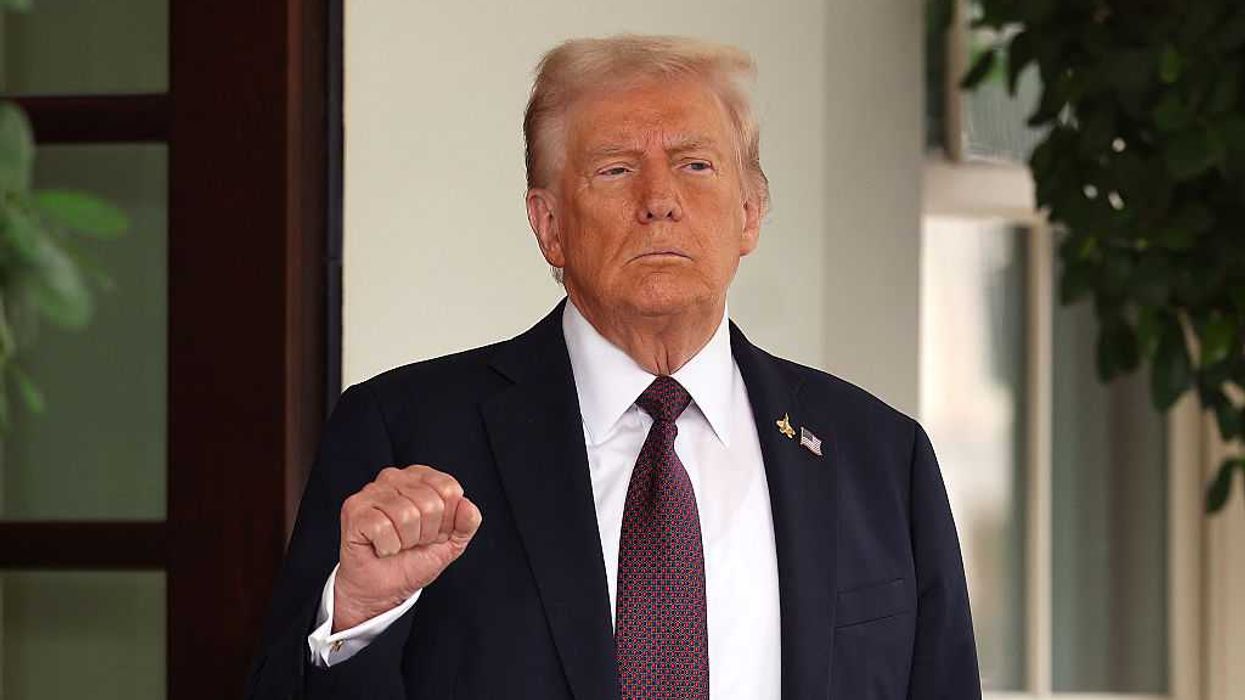Now, hold on—hear me out.
Is Donald Trump right? I'm serious because the answer hinges on a deeper question: Should the presidency serve as a force for disruption or a safeguard of preservation?
For millions of Americans, President Trump’s second term isn’t a threat to democracy—it’s the fulfillment of a promise they believe was long overdue.
To be clear. I do not support Donald Trump. You only need to read my last couple of columns to reach that conclusion:
Is Pritzker Right? Is It Time To Invoke the 25th Amendment Against Trump?
Pope Leo XIV’s Rebuke of U.S. Immigration Policy Is a Wake-Up Call
Trump’s Deepfake Isn’t Just Offensive—It’s a Racist Distraction from Real Governance
I’ve never voted for Trump. I’ve been consistently critical of his leadership—particularly his scapegoating of vulnerable communities like immigrants (I am the son of Peruvian immigrants), and his attacks on the fourth estate, which undermine the role of journalism in a functioning democracy. I have served twice as president of the National Association of Hispanic Journalists (NAHJ), an organization championing the constitutional protections of a free press.
My work has long centered on the pursuit of truth, producing stories that are fair, and accurate, and I remain committed to those values.
Still, understanding the appeal of Trump, especially his second term, is essential—not to endorse it, but to engage it. Journalism demands that we interrogate power, not just oppose it. And civic dialogue requires that we listen, even when we disagree.
So, I ask you again. Is Donald Trump right? 77,302,580 (49.8% of the popular vote in the 2024 presidential election) believe he is.
One of Trump’s most defining—and divisive—stances has been his hardline approach to immigration. In his second term, he has doubled down on his efforts. “We will carry out the largest domestic deportation operation in American history,” he declared at a 2024 campaign rally in Phoenix. His administration has expanded detention centers, accelerated removals, and proposed legislation to end birthright citizenship for children of undocumented immigrants.
I've argued immigration enforcement is not just a matter of policy—it’s a billion-dollar business. And behind the Trump Administration's rhetoric of “law and order” lies a disturbing truth: deportation-industrial complexes are not only profiting from human suffering, they’re bankrolling political campaigns that promise more of it.
Supporters argue this is not cruelty—it’s clarity. His framing of immigration as a national security issue has resonated with voters concerned about crime, labor competition, and cultural cohesion.
In response to rising crime and civil unrest in major cities, Trump has authorized the deployment of National Guard units to Chicago, Portland, Memphis, and other cities. Trump announced via social media that he had ordered the Department of Defense to deploy “all necessary Troops to protect war-ravaged Portland.” He justified the move as essential to safeguarding U.S. Immigration and Customs Enforcement facilities, which he claimed were “under siege from attack by Antifa, and other domestic terrorists.”
I’m originally from the Northeast—born and raised in Paterson, New Jersey, with years spent working in New York City—but for the past five years, my family and I have called Chicago’s West Side home.
Yes, this city has long struggled with gun violence, and yes, our local leaders must be held accountable. But deploying the National Guard isn’t a solution—it’s political theater masquerading as public safety. It risks escalating tensions rather than easing them. Real change requires investment, not intimidation.
Still, Trump’s supporters see it as a necessary intervention.
For Trump, the National Guard is not just a tool of enforcement—it’s a symbol of federal resolve. His administration has framed the deployments as part of a broader initiative aimed at curbing violent crime and restoring public confidence in law enforcement.
A flurry of executive orders has marked Trump’s second term. These directives have touched everything from energy policy to education, tariffs to federal hiring practices.
Among the most controversial measures, the Trump Administration has made its priorities clear: ramp up domestic production of natural gas, oil, and coal, while rolling back federal initiatives aimed at advancing renewable energy and combating climate change. And a sweeping order requiring all federal agencies to review and eliminate “woke” training programs.
As a diversity, equity, and inclusion trainer and practitioner, I firmly believe this isn’t a time to cower to political pressure and retreat from programs necessary to ensure that institutions meet the needs of increasingly diverse populations. This is the time to advance on DEI initiatives.
Trump’s supporters praise his governance as bold and decisive—an antidote, they argue, to bureaucratic gridlock.
Immigration, the National Guard, executive orders —the list goes on and on.
In a political landscape defined by polarization, Donald Trump’s second term has reignited fierce debate over executive power, national identity, and global leadership. Critics warn of constitutional overreach and rhetorical recklessness. Yet for many supporters, Trump’s unapologetic style and sweeping actions represent a long-overdue correction to what they see as decades of political stagnation and global appeasement.
The question remains: Is Donald Trump right?
I want to hear from you.
Send your response—no more than 300 words—to newsroom@fulcrum.us. Please include your full name (or just first name if that makes you feel more comfortable) and the state you live in. The Fulcrum will select a range of submissions to share with readers as part of our ongoing civic dialogue.
We offer this platform for discussion and debate. Be thought-provoking, yes—but also thoughtful.
I look forward to reading your reflections.
- Hugo Balta, Executive Editor, Fulcrum, and Publisher of the Latino News Network.




















Trump & Hegseth gave Mark Kelly a huge 2028 gift